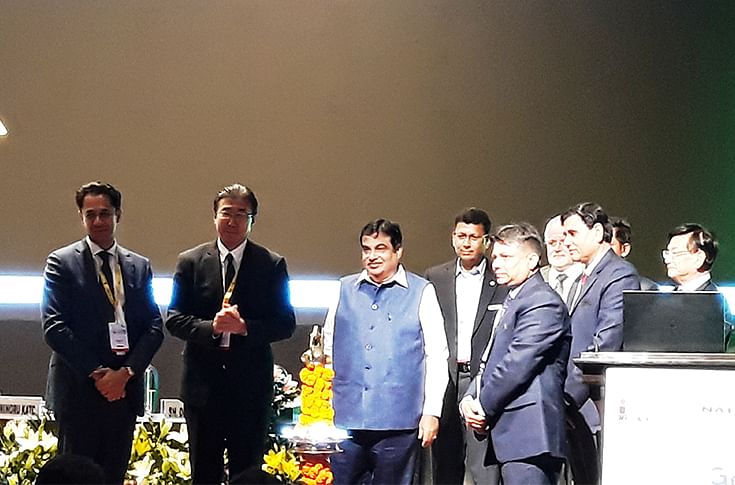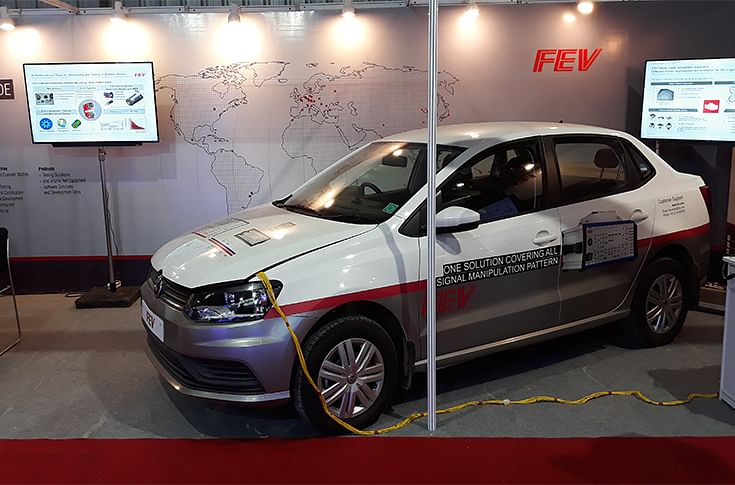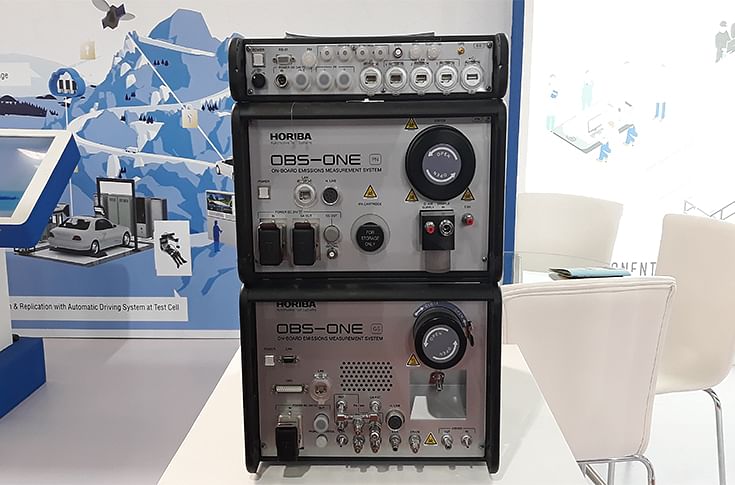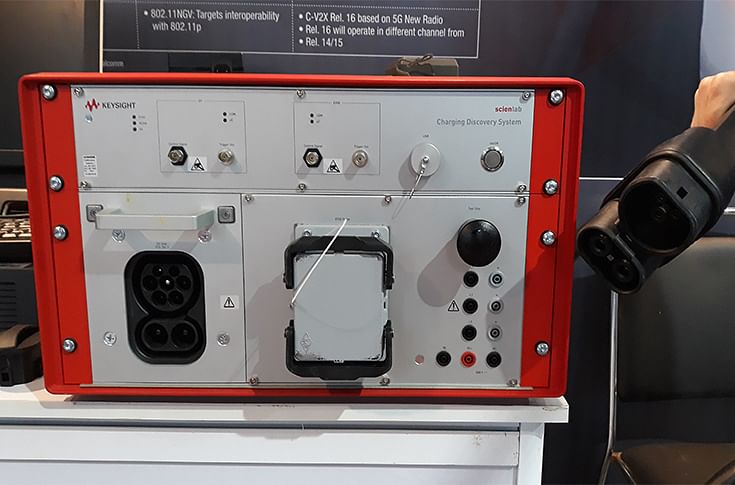India Auto Inc charts out future roadmap at NuGen Mobility Summit 2019
With conferences, demonstrations and exhibitions, iCAT's inaugural industry initiative delivers a common platform for brainstorming challenges and opportunities in a time of disruption.
As the Indian automotive sector witnesses an era of rapid change and disruption, a common platform for discussion and deliberation for the way forward was the need of the hour. To identify the trends and future roadmap for sustainable mobility in the country and address the challenges of major stakeholders, the International Centre for Automotive Technology (iCAT) organised the inaugural edition of the NuGen Mobility Summit at its facilities in Manesar, Haryana on November 27-29, 2019.
The summit proved to be a massive undertaking in bringing together experts from the industry, research institutions, academia and the government to share and discuss studies, reports, proposals as well as new ideas. It saw the presentation of over 90 papers, over 30 keynote addresses by experts, 92 test track events and several other lab demonstrations and training events.

Recognising the direction in which the automotive industry is headed, NuGen Mobility Summit 2019 focused on technologies such as e-mobility, hydrogen fuel cell vehicles, autonomous driving and connected and shared vehicles.
Speaking at the event, Nitin Gadkari, Union Minister for Road Transport and Highways, not only discussed ongoing efforts aimed at improving India’s automotive landscape but also encouraged stakeholders to accept and work towards the government's long-term vision. With India set to become the world's third-largest economy by 2030, inflated import bills and rampant pollution have the potential to become formidable barriers. Consequently, import-substitution, cost-effectiveness and pollution reduction are the primary pillars around which key government policies are being framed. The minister further revealed that road projects worth Rs 17 lakh crore have been approved in the past five years, with the construction of 22 express highways also in the pipeline. A major highlight is the upcoming Delhi-Mumbai Expressway, projected to cost the exchequer around Rs 1 lakh crore and touted to reduce travel time between the two metropolitans to just 12 hours. Moreover, proliferation of bio-fuels including methanol, ethanol and bio-diesels is also seeing concerted efforts from the current regime.
Conferences held over the course of three days brought to the fore industry's major challenges as well as plausible remedies that could help alleviate the issues. A joint report prepared by iCAT and the Boston Consulting Group highlighted the emission reduction capabilities of hybrids and the need to incentivise all forms of electrification, and not just battery electrics, for the true benefits to really percolate through.
Other viewpoints that found consensus among major automakers were the requirements of long-term stable policies and a single nodal agency, which can bridge the gap between the auto industry and the plethora of government departments whose decisions have a direct bearing on India Auto Inc. Another idea that was floated was a taxation regime based on carbon emissions rather than vehicle size, engine capacity and fuel type.
In addition to numerous discussions and conferences pertaining major issues, the NuGen Summit also extended opportunities for key and upcoming automotive players to showcase innovative products and ideas. Autocar Professional caught up with a few exhibitors to better understand where automotive technology is headed.
FEV: German powertrain expert FEV, which boasts of a presence in 49 countries, began its India operations in 2006. Though the company has become globally synonymous with powertrain consultancy in its 40-year history, it has also branched into offering end-to-end solutions for complete vehicle development in the past decade including vehicle design, product planning and market research. Moreover, it caters to the engineering needs of the complete gamut of products – right from two-wheelers and passenger vehicles, to ships and other marine applications.
 With its development centre in Pune comprising 12 test benches, a chassis dynamometer and an NVH test facility, FEV India works closely with major OEMs like Maruti Suzuki, Mahindra & Mahindra, Tata Motors, Renault and Volkswagen. On the global scale, Daimler, BMW and Jaguar Land Rover are some of the other major clients of the German brand.
With its development centre in Pune comprising 12 test benches, a chassis dynamometer and an NVH test facility, FEV India works closely with major OEMs like Maruti Suzuki, Mahindra & Mahindra, Tata Motors, Renault and Volkswagen. On the global scale, Daimler, BMW and Jaguar Land Rover are some of the other major clients of the German brand.
Using the mobility summit as a platform to showcase its cutting-edge solutions, the powertrain expert demonstrated a patented technology, dubbed the ASM Box, on a Volkswagen Ameo compact sedan. The actuator sensor manipulator unit allows the recreation and simulation of faults and functional failures (such as a misfire) in a production vehicle for validation and testing - a process which wasn't possible until now.
Horiba: Horiba is renowned worldwide for its expertise in a wide array of test instruments for applications including automotive, semiconductor manufacturing, scientific research, medical diagnostics and process and environmental monitoring. Incorporated in 1953, the Japanese organisation is a global leader in the manufacturing of measurement instruments. Since its entry into our market in 2006, Horiba India now has a workforce of close to 500 people across multiple cities. The Delhi-based Rs 400 crore organisation also has a technical centre in Pune replete with a scientific lab and vehicle testing facilities.
 With the aim of becoming a turnkey solutions provider, the company offers a host of automotive testing equipment and services, which can aid automakers right from inception to the end of vehicle development. This includes driveline test systems, brake test systems, e-motor test systems and technologies for aerodynamic analysis, to name a few.
With the aim of becoming a turnkey solutions provider, the company offers a host of automotive testing equipment and services, which can aid automakers right from inception to the end of vehicle development. This includes driveline test systems, brake test systems, e-motor test systems and technologies for aerodynamic analysis, to name a few.
Horiba India claims to have a monopoly in automotive emissions testing, with most major OEMs as its clients and a market share in excess of 80-85 percent. With the nationwide switch to RDE standards slated in 2023, the company is witnessing a growing demand for portable emissions measurement systems (PEMS). The company believes that manufacturing and developing in-house from the ground up makes its RDE equipment stand out compared to rival offerings that often rely on outsourced components. What further helps is a dedicated RDE team that aids clients in the execution of rigorous emissions tests. Having an edge over competition has allowed Horiba India to become a major supplier of advanced PEMS to the likes of iCAT, ARAI, Maruti Suzuki, Honda Cars India, Tata Motors and Ashok Leyland.
In line with the shift towards cleaner technologies, the brand also deals with electric powertrains. After a recent company acquisition, it has gained the capability of testing battery cells, modules, packs, as well as fuel cells.
Furthermore, the company believes that its presence in scientific and semiconductor domains gives it a leg up by allowing it to synergise and apply unique technical know-how from those sectors to the automotive field.
Keysight Technologies: As vehicles move towards deeper integration with electronic and electrical technologies, there arises a need for testing and validating systems of a new breed. This is where Keysight Technologies steps in. The American brand, which can trace its roots all the way back to Hewlett-Packard, has a footprint in multiple Indian cities with an R&D facility in Manesar.
With electronics test and measurement solutions being its main focus area, the company is now even venturing into electrical testing. It develops and manufactures equipment starting from handheld devices to highly specialised niche systems. By virtue of its expansive range, it is catering to a multitude of industries like aerospace, defence and telecommunications, with a ‘key’ focus on the automotive segment.
 Keysight Technologies counts leading auto OEMs such as Maruti Suzuki, Hyundai and Honda and suppliers like Continental, Bosch and Denso, along with various certification agencies, as its clients. The automotive segment finds use in multiple products offered by the company including multimeters, oscilloscopes, function generators and power supplies to test their ECUs, sensors, radars, cameras, Lidars and various ADAS system components.
Keysight Technologies counts leading auto OEMs such as Maruti Suzuki, Hyundai and Honda and suppliers like Continental, Bosch and Denso, along with various certification agencies, as its clients. The automotive segment finds use in multiple products offered by the company including multimeters, oscilloscopes, function generators and power supplies to test their ECUs, sensors, radars, cameras, Lidars and various ADAS system components.
With e-mobility being the current buzzword, Keysight has also expanded into EV testing through acquisitions in recent years. It now also offers technologies for battery cell charging and discharging tests, HEV/EV power converter tests and powertrain systems tests.
The American major also showcased one of its cutting-edge products, a base station emulator called UXM, at NuGen. The equipment can be used to test connectivity systems in vehicles that allow vehicle to vehicle communication and automated communication with emergency services in case of accidents. UXM can replicate and emulate mobile networks ranging from 3G all the way up to 5G, thereby enabling a manufacturer to test its connectivity systems in a lab itself.
RELATED ARTICLES
Cosmo First diversifies into paint protection film and ceramic coatings
The Aurangabad, Maharashtra-based packaging materials supplier is leveraging its competencies in plastic films and speci...
JSW MG Motor India confident of selling 1,000 M9 electric MPVs in first year
The 5.2-metre-long, seven-seater luxury electric MPV, which will be locally assembled at the Halol plant in Gujarat, wil...
Modern Automotives targets 25% CAGR in forged components by FY2031, diversifies into e-3Ws
The Tier-1 component supplier of forged components such as connecting rods, crankshafts, tie-rods, and fork bridges to l...






 03 Dec 2019
03 Dec 2019
 9520 Views
9520 Views










 Autocar Professional Bureau
Autocar Professional Bureau




